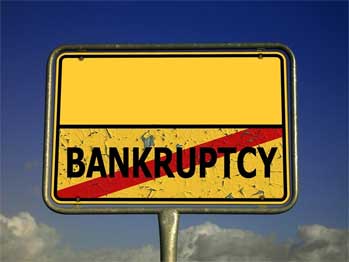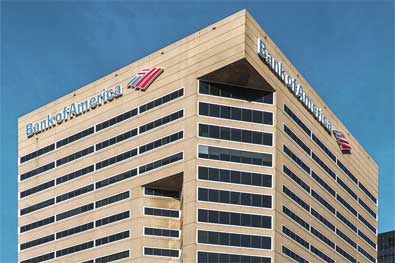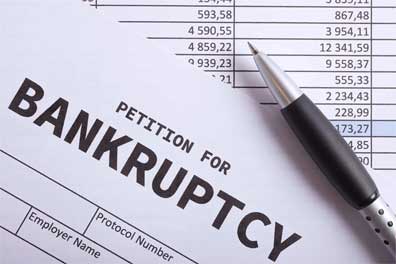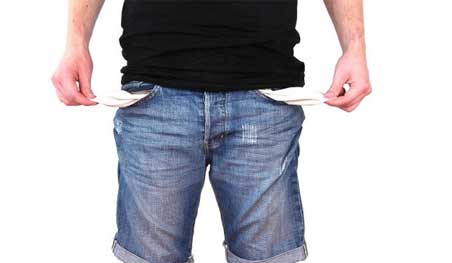
Having Trouble Repaying Your Payday Loans?
Reno, NV – Recently, it was asked, “What should I do, I have 9 payday loans totaling $5,600 and I can’t pay them anymore.”
Payday loans are usually loans between $200-$1,500, short-term, with extremely high interest rates. In Las Vegas, interest rates on payday loans are commonly between 250% to 600% per year. Unlike some other states, Nevada does not cap the interest rate that lenders may charge.
Loans are usually due in two weeks. The Borrower may elect to pay just the interest and roll the loan into a “new” loan. Rolling over the loan keeps the borrower in a constant state of debt until it is paid in full.
How Do I Consolidate or Modify My Debt/Loans?
Most borrowers elect the rollover option since the borrower usually cannot pay the loan in full. At this point, a significant portion of the borrower’s income is used to simply pay the interest.
On the above example, the borrower has $5,600 spread over 9 payday loans. The monthly payment would be approximately $1,400 per month with interest at 300% per year. Such an interest rate is standard.
The danger is that the borrower has 9 loans. Since the amount loaned is based on income, the debt is probably 9 times the amount that he can handle. My guess is that some of the payday loans were taken to service the previous loans.
At this point, Bankruptcy may be the only realistic option. A successful Bankruptcy claim will eliminate the debt of the payday loan, and immediately upon filing the Bankruptcy, the lender’s collection activities must stop pursuant to court order.
If you have payday loans and are unable to realistically pay off such loans, contact the Okano Injury Law – Bankruptcy Lawyer. We will protect you from Creditor Harrassment.

What Happens If I Can’t Afford To Pay A Bankruptcy Lawyer?
Working with a bankruptcy attorney in Las Vegas is important because it helps you get legal help, get a guide through your bankruptcy process and preparing any paperwork needed. However, there are certain legal fees you are required to pay to get these services. Alternatively, if you cannot afford the lawyer’s fees, you can:
Represent yourself
Negotiate for a reduced lawyer’s fees
Find a pro bono lawyer who is willing to take your case without you paying
Getting legal help from a free legal aid society
Paying your attorney fees through the chapter 13 bankruptcy repayment plan
Represent yourself as a prose debtor
Although it is not a must to hire a lawyer to help you when you are bankrupt, whether you will need to hire a lawyer will depend on the following factors:
a) The complexity of your case
b) The Bankruptcy type you want to file
c) Your willingness to do thorough research and dedicate your time to follow up the case on your own
Filing A Chapter 7 Bankruptcy
This type of bankruptcy means you have little or no income or assets to your name and also, you do not have any other matters which might complicate your bankruptcy. You can file this type of bankruptcy on your own because it is not complicated. However, after filing the case, you need to dedicate your time and research to avoid dismissal of your bankruptcy or risking your property. It is advisable to research through the internet and mostly on reliable self-help books available.
Filing Difficult Chapter 7 & 13 Bankruptcies
Filing difficult chapter 7 and almost all chapter 13 bankruptcies, you need professional help with extensive knowledge since these cases have numerous pitfalls if you are inexperienced. Therefore, to avoid risking a lot, you need to hire a lawyer to handle your case and advise you throughout the process. Mostly, even if you cannot hire an attorney, you can agree on paying your fees through an agreed repayment plan. With this kind of a plan, you will require little or no fees upfront when filing the case. However, if you cannot afford a lawyer whatsoever, you can seek advice from an experienced attorney who can give you free consultations to help you find out about hidden dangers and pitfalls you may have in your case.
Negotiate For A Reduced Amount
If you have opted to hire a lawyer and you cannot afford the quoted fee, you can try negotiating for a reduced amount. Matter of fact, you can propose to the lawyer the amount of money you can afford and you are willing to offer him to see if he or she will accept. However, if you cannot agree on a fee, you can seek legal services from other attorneys who offer similar services.
Seek Help From A Free Legal Aid Society
In the US, there are numerous legal clinics which offer legal services for free to low-income earners. If you cannot afford a lawyer, you can seek help from any of these societies which provide legal services free of charge. Sometimes, bankruptcy courts have information centers that help self-represented debtors by providing necessary information. If you have a case to file, you can find out with your local bankruptcy courts to know whether they have any centers to help you.
Find A Pro Bono Attorney
Many attorneys take a number of cases without charging a fee or at a significantly reduced lawyers’ fees. If you cannot afford legal fees, you can find a pro bono lawyer and he or she will assist you in any way possible. You can start your search online through your state bar or talk to lawyers within your location. They are easy to find and very affordable or entirely do not charge any fee.
Chapter 13 Fee-Only Bankruptcy Plan
This plan is mostly used if you cannot afford to pay your lawyer fees upfront, you might need to get a chapter 13 bankruptcy lawyer who offers a payment plan so that he or she can be able to get their legal fees from your repayment plan. Even if this plan is aimed at helping those people who cannot pay legal fees, some courts do not allow this plan, while others consider some factors before approving it. Therefore, you need to talk to your lawyer to know whether you can use this plan in your case or whether it’s legal in the jurisdiction you are in.

Bank Of America Continues To Win
February 9, 2012 – It was announced that the State of Nevada settled its Mortgage Servicing Foreclosure claim against Bank of America. According to the terms of the settlement, Bank of America, in addition to other settlement terms, would “set aside $750 million in first and second lien principal reductions . . .” See Attorney General Mastro Announces Two Historic Mortgage Servicing Foreclosure Settlements.
However, at least is some instances, the same debt that Bank of America is reducing as part of the terms of the Mortgage Servicing Foreclosure Settlement, have already been approved for elimination in separate Bankruptcy Court proceedings.
In a Chapter 13 Bankruptcy, second mortgages may be “stripped-off” and eliminated if the debt is wholly unsecured. In other words, if the value of the property is less than what is owed on the first mortgage, than the second mortgage may be “stripped-off” and eliminated, subject to other additional requirements.
In some instances, Bank of America is fulfilling its terms of the settlement with debt that has no value. No real cost to Bank of America. In fact, Bank of America may by collecting a dividend as part of the pool of Bankruptcy unsecured creditors, in cases where the second mortgage had been stripped.
While the “Forgiveness” letter informing borrowers that their debt would be forgiven does contain a paragraph about Bankruptcy, in many instances, the forgiveness of the second mortgage does not impact the debtor’s status in Bankruptcy in any beneficial manner. For example, such forgiveness does not necessarily reduce the Bankruptcy Plan payment or qualify the debtor for Chapter 7 bankruptcy. Conversely, it may actually place costly burdens upon the Bankruptcy Debtor.
I do not believe that Bank of America will be much deterred from continuing the conduct that caused this settlement, at least not by having to forgive the debt, already eliminated.

For many people, just the word “bankruptcy” can be intimidating. That’s why if you are thinking of filing for bankruptcy, knowing the facts is important. Here are several important facts about bankruptcy that you should be aware of:
Fact 1 – When You File For Bankruptcy, You Usually Get to Keep Most of Your Property
If you file for bankruptcy, you do not have to lose all of your property. For example, when you file for Chapter 7 bankruptcy in Las Vegas, your furniture, clothes, household goods, one car, and your house are usually protected and they will not be liquidated to pay your creditors.
Fact 2 – You Will Be Able to Obtain New Credit After You are Discharged from Your Bankruptcy case
Though the credit comes with pretty high interest rates, many people get offers for new credit cards soon after their bankruptcy discharge. Also, people often get car loans in only a few months after their cases are over. Likewise, though you will probably not get the best interest rate, a bankruptcy will not stop you from getting a mortgage. If you work to rebuild your credit, you may be able to get a mortgage in as little as 2 years after your case is over.
Fact 3 – Even Though the Case Will Be On Your Credit Report For 7 Years, Your Life is Not Ruined
All bad credit stays on your credit report for 7 years. Bankruptcy just stays on your credit report a few years longer. But this should not prevent you from enjoying a fresh start financially and from taking advantage of the opportunity to rebuild your credit profile. One of the main reasons why you will be able to get credit after your bankruptcy is because once your case is over, you will usually be debt free. So, in a way, banks will consider you a good credit risk because you do not have a lot of other debt and your income is free from paying the old debt.
Fact 4 – You Must Tell The Court About All of Your Creditors
Sometimes, when people file for bankruptcy, they want to leave out certain creditors. This is a bad idea and against the law. Whether it be your brother, your mortgage, or your auto lender, you are not allowed to leave out the debt. Listing a creditor does not mean that you will lose that property. So long as you continue to pay your home mortgage and/or car payment, you may retain such property under the same loan terms prior to the bankruptcy filing. You simply must list every creditor to let the court know about all of your debts.
Fact 5 – Your Spouse Does Not Have to File for Bankruptcy Just Because You Do
You can file for bankruptcy in Las Vegas alone, even if you are married. If your spouse does not want to file and you do, that is OK. When you file for bankruptcy without your spouse, only your debts will be discharged. If you and your spouse hold debts jointly, your spouse will still owe those debts even after you have filed bankruptcy. But, your spouse’s credit should not be damaged as a result of your bankruptcy.
Fact 6 – Sometimes, You Can Discharge Taxes in Bankruptcy
In some limited circumstances, bankruptcy can wipe out your back income tax debts. Certain federal income taxes debts can be discharged by filing for Chapter 7 bankruptcy, but only if you meet certain requirements. Speak to an experienced bankruptcy attorney in Nevada to find out if and how you can qualify.
Contact an Experienced Bankruptcy Attorney Today
Yes, bankruptcy can sound intimidating. But, with the right advice and guidance, you can navigate the process successfully and come out on the other side with a fresh financial outlook. If you are thinking about filing for bankruptcy and want to learn more, contact an experienced bankruptcy attorney today for a free, no-obligation consultation.

When you are dealing with any legal matters, it is wise to choose a lawyer carefully, especially when you are in a tough bankruptcy situation. There are some things that you should take into consideration when looking for a bankruptcy attorney in Las Vegas to help you with your bankruptcy issue.
When you are looking for the right attorney that knows the bankruptcy law, you should take into consideration the following facts:
Be sure that you are getting what you pay for:
It is depressing but true that the fee is going to be the primary factor when you are hiring a bankruptcy attorney in Nevada. It is not surprising though because money is the main problem of this situation. The cost is $1,000 although it varies depending on where you are located, it is imperative that you receive your money’s worth.
Get some help from an expert in bankruptcy:
It is true that every single lawyer knows the bankruptcy law, but it is best to get a specialist in that case. You can ask questions about the attorneys past to make sure that they have the experience and the qualifications to handle your specific legal issue. Some questions you can ask a bankruptcy lawyer is how many bankruptcy cases they have done and how many were successful? You have the right to know the answers to these questions because you are giving them money.
Stay up to date with the code changes:
Although staying up to code may not affect at all, someone who is not a lawyer or not familiar with this issue won’t be able to tell if their case will change because of a different attorney.
Don’t use a firm mill:
Mill firms are known for having poor quality legal work, causes judges to be suspicious and concerned about mills and clients pulling a fast one on the creditors by abusing the whole process.
Feel comfortable talking to them:
When you are working with a bankruptcy lawyer, you should make sure that you feel comfortable talking to them. Some people are embarrassed that they have to declare bankruptcy and it is a hard decision to make. Because of the feelings that you are dealing with during the process, you not only want your lawyer to have the right experience, but you want your bankruptcy lawyer to show that he understands your goals and your situations. Your lawyer should be sensitive to your feelings and take their time to ask difficult questions.
You should always want your bankruptcy attorney to be upfront and honest about the bankruptcy law and the issues that your case may face. Some problems and risks that you may encounter are not being able to get rid of certain debt, and losing your property. When you first meet with your lawyer, he should explain these risks and situations upfront if it will affect your case.
Here Are Some Questions That You May Ask Your Attorney:
Will you go to court with me?
Some law firms maybe overwhelmed with bankruptcy cases, because of this there may be another representative going to court with you. You can figure out if they are a mill or not based on if they come to court with you.
Who will be taking care of my bankruptcy papers?
Not only should you know who is going to court with you, but you should know who is taking care of your bankruptcy papers. Bankruptcy law is stringent, so a bankruptcy law expert, Nevada that has experience will review all parts of the case with you including who will prepare your documents, which most likely will be the help of an assistant. A warning sign that you should look out for is if your lawyer mentions that he will hand off the paperwork to a paralegal. If that is the case, you do not want to be with them in court.

Las Vegas, Nevada – Consumer Bankruptcy May Be Part Of A Plan For Any Employee Impacted By Layoffs From The Coronavirus
The highly contagious Coronavirus has already inflicted a medical emergency across the world. Now the virus Covid-19 has caused all non-essential businesses in the State of Nevada to close, the Las Vegas Strip has temporarily closed its doors for the next several weeks. It is now looking like this closure may last many more weeks.
The suspension of non-essential business operations is leading to the furlough of thousands of Las Vegas employees and the loss of income for small business owners. The Las Vegas Strip employees impacted by such closures are casino dealers, housekeeping, restaurant servers, cooks, performers, bartenders, retail sales clerks, front desk, porters, valet and so forth. Moreover, all of the businesses that are ancillary to the Las Vegas Strip will be negatively affected. Such as Taxi, Uber and Lyft drivers, and tour groups.
Any work stoppage may cause severe financial hardship for any family. Especially so for the many workers living paycheck to paycheck. However, a weeks-long or months-long work stoppage will be a financial disaster to even the most prepared. Mortgage payments are still expected to be paid, groceries are needed, and the power bill will continue to come in.
Las Vegas employees live and spend their hard-earned money in the Las Vegas community. And when there is a cut back on their spending in the local economy, there is a ripple effect throughout the Las Vegas area. Discretionary spending is usually the first to go. This will lead to a weakening in the overall job market in the Las Vegas area.
With the Federal and local governments restriction on travel, the tourist-dependent Las Vegas Strip will suffer an even bigger hit than a temporary suspension of activity. At this time, it is unknown how long it may take to contain the Coronavirus. The recent strip closures are for two weeks, but it is possible it could be for many weeks longer. Even after any containment, it is unknown how long it may take for the tourist industry on the Las Vegas Strip to return to normal.
Anyone impacted by the downturn in the Las Vegas economy should have a plan with options to be as prepared as possible. Success favors the prepared!
Government relief
Anyone laid off should immediately apply for unemployment benefits. Nevada unemployment benefits are available for up to 26 weeks. During the 2007 – 2010 great recession, the federal government stepped in and unemployment benefits were extended to 52 weeks. The weekly amount of unemployment benefits is based on 4% of the highest-earning quarter of the base period. The weekly maximum is $427.00.
Undoubtedly, the federal government will be rolling out some form of relief as well. Initial relief may be a one-time payment of $1,000.00 – $2,000.00. This will probably be limited to people who are under a yet to be established income requirement.
I am sure whatever the governmental aid will ultimately be, it will not replace the incomes that the now out of work employees were earning before these massive layoffs. Collecting a maximum of less than $1,900.00 per month will leave many in a challenging financial position.
Hard decisions will soon confront many of us. At what point does one decide to stop making credit card and other loan payments? The answer is dependent on an array of factors: Amount of debt, length of time out of work, amount of cash reserves, amount of money paid when gainfully employed, any late payments or stopped making payments prior to the work stoppage.
Continuing payment on payday loans while on unemployment will probably not even be possible. Payday loans usually require two payments per month, and each payment is equal to 25% or more of the total amount of the loan. The super high-interest rate keeps the loan balance from going down. Again, someone who is unemployed, probably cannot maintain any payday loan payments.
Two things you should not do before consulting with me is liquidating a 401(K) account to pay debts or take a Home Equity loan to pay a debt:
1. Liquidating or borrowing against a 401(K) or other retirement accounts to pay debts may be a bad move
First, a retirement account is a form of saving to support yourself when you retire. The federal government encourages this form of savings by offering tax benefits and protections. As we are now witnessing, self-preparedness is paramount.
Second, a careful analysis should be conducted to determine whether personal bankruptcy is a potential option. If ultimately files for bankruptcy, most loans and credit card debts are eliminated. For a personal claiming Nevada exemptions, in a bankruptcy, a 401(K) account may be protected up to $500,000.00. Thus, liquidating a 401(K) to pay-off some of the debt, or to pay-off and then recharge up debt, and later still file for bankruptcy would result in the needless loss of your valuable retirement account.
2. Taking a Home Equity loan to pay debts may not be a good move for you
First, debts such as credit cards and payday loans are unsecured. There is no property or collateral securing the debt. So if you fail to pay back the loan there is no collateral for the lender to take. The lender may take legal action against you for failing to pay the loan, but there is no property directly tied to the loan.
In contrast, a secured debt there is some collateral that secures the debt. The collateral is usually a home or vehicle. A home equity loan is a secured loan. In a home equity loan (secured debt) if you fail to pay back the loan the lender may foreclose on your home. The problem with taking home equity to pay an unsecured debt is that you are essentially turning the unsecured debts into secured debt. In a bankruptcy claiming Nevada exemptions, you can protect your homestead up to $550,000.00 in equity.
The Coronavirus has presented Las Vegas with a scary medical challenge. The fallout from this medical emergency is the immediate stoppage of work. If you are faced with unmanageable debt, credit card, payday loans, behind on home mortgage payments, please do not hesitate to contact the Law Office of Rodney K. Okano at (702) 566-3600.
I am available to discuss potential options over the telephone without the need to leave your home:

American women are much more likely to have unpaid medical debt, increasing the risks of bankruptcy, compared to women in other parts of the world. According to new research that has recently been released by the nonprofit organization, the Commonwealth Fund, approximately 26% of Americans had unpaid medical bills in 2009-2010.
Medical Bills: Unexpected And Expensive
That was staggeringly high medical debt, compared to women in Australia who held about 13% in unpaid medical debt. In Germany, just about 4% of women had unpaid medical bills during that same period of time.
Consider All Options
Part of the problem seems to be that many American women purchase health insurance coverage either under duress by the insurer, or without going through all available options. Insurers may sell plans that don’t cover many important conditions. As many personal bankruptcy lawyers in Las Vegas see, a woman with insufficient coverage may find that her insurance plan does not cover her illness, leaving her with heavy unpaid medical bills.
Am I Covered?
Women who are of childbearing age must be much more careful when they purchase their insurance policies and must make sure that the services that they need during these years, like childbirth, are covered in these plans. The Commonwealth Fund says that women who belong to this age demographic are at a high risk of not being able to afford the healthcare they require. Many of these women may have trouble with medical debt and, and consequently, often, they have no other option but to file for bankruptcy.
The Commonwealth Fund also confirms that women are much more likely to use health care services than males, although they’re less able to afford healthcare insurance compared to males, because of their low incomes. The researchers compared the medical debt of women in the United States with those in Canada, France, Germany, Australia, Norway, New Zealand, the Netherlands, Sweden, Britain, and Switzerland.

If you are considering filing for bankruptcy in Las Vegas it is important that you fully understand what will happen to your assets. The two biggest assets that most people have are their car and their home. Under Nevada Exemptions, these two assets are usually protected from the bankruptcy process. This means that you can keep them if you declare bankruptcy. If you still owe money on the vehicle you may be able to temporarily stop repossession with a bankruptcy stay, while you sort your finances out.
Of course, if you still owe money on your house and/or car, you must continue to make payments, if you want to keep them. Otherwise, the lender may repossess your car or foreclose your home, and retake it. However, the Bankruptcy will eliminate any further obligation to make payments, if you decide to surrender such asset. It may be a good idea to seek advice from a motoring specialist lawyer to understand your right and your options.
Do You Always Get To Keep Your Car?
Under Nevada Law, the first $15,000 of equity held in a standard motor vehicle is exempt. This means that if your car is worth less than $15,000, it may be classed as exempt. A car that is worth more than $15,000 may also be exempt if your equity (the difference between the value of the vehicle and the amount of money you owe) is less than $15,000. In addition, if you are disabled or one of your dependents is disabled and the vehicle has been specially equipped for use by that person, then it is exempt regardless of its value.
This means that if you are filing for a Chapter 7 bankruptcy In Las Vegas, the trustee will not sell your car. Very important to note, not all people immediately qualify to apply Nevada exemptions to their bankruptcy case. Just because one files for bankruptcy in the State of Nevada does not necessarily mean they are eligible for Nevada exemptions. You must have resided in the State of Nevada for two years prior to filing for bankruptcy in Nevada.
Note that if you still owe money on your car and want to keep the financing, then you may need to sign a Reaffirmation Agreement. Such an agreement legally obligates you to pay all the monies due on the vehicle even after bankruptcy.
Bankruptcy Automatic Stay – Relief from collection activities
In most cases, the filing for bankruptcy in Vegas automatically imposes a stay against creditors from any collection activity. This stay is automatically applied when a person files for bankruptcy and the purpose of it is to give the debtor the opportunity relief from the harassment of creditors. During this, time the debt should decide whether they intend to retain their vehicle and to continue making payments, or surrender it and stop making payments.
For this reason, it is important that you act quickly and communicate with your lenders proactively to avoid repossession.
If your car has been repossessed, then you may be able to get it back in a chapter 13 bankruptcy, but you will need to move quickly to do this. Applying for the return of your assets using this rule can be complex, and it is best to seek professional legal advice from a bankruptcy attorney who can stop car repossession and to ensure that things are done properly.
The window of opportunity that you have for getting your assets returned is small and any mistakes made during the process could invalidate your claim. If you do get your vehicle returned to you using this rule then you will still have to follow the processes for reaffirming your obligations, and make payments on the loan going forward, to prevent repossession from happening again. Reassess your finances and make sure that you can make those payments before you pursue this avenue.

Whether there’s a pandemic like there is now, or there’s some other economic crisis, you may find it hard to make ends meet. You may fall behind on your payments, or you may miss them altogether. Your balances may start climbing, and you may start getting harassing phone calls from creditors.
You may start thinking about filing for bankruptcy as a way to free up the money you need and to regain control of your finances. While bankruptcy may ultimately be the right answer for you, you may also want to consider some other options before you file. A vehicle title loan could be the right option.
Prevent Collections Or Repossession
Most people don’t just stop paying their bills because they don’t feel like paying them. They just don’t have the money. If they had the money, they would pay. If you find yourself in this position, you can get the money you need by taking out an auto title loan. You can borrow up to the value of your vehicle – so long as you own your vehicle outright and have a title in your name.
You can use the money from your title loan to pay off accounts that are about to go into collections or repossession. That will save you from more money problems that will result from the fines, interest rates, and penalties that will make your balances even larger (and harder to pay off).
Pay Down Higher Interest Items
Unfortunately, some vehicle title loans have a bad reputation for high-interest rates because there are some bad companies out there who maintain predatory terms. However, if you shop around, you can find a quality, reputable title loan company that will give you competitive terms.
With the right terms, you can use your title loan to pay off credit cards and other accounts that have a higher interest rate. You can save a little money on your monthly bills, and you can save a lot of money in the long term.
Consolidate Your Debt Payments
You may try to take out additional credit cards or other lines of credit to make ends meet when you are struggling. Eventually, you have multiple minimum monthly payments that you are making, but you aren’t putting a dent in your overall balance because you are only paying off the interest. Meanwhile, you have no money left over each month because you are putting everything into your debt payments.
By getting a title loan, you can pay off all your credit lines (depending on how much value there is in your vehicle), and you can have one monthly payment to make. That can bring down your overall monthly payment, helping to gain greater control over your monthly budget. You can free up money so that you don’t have to turn to take out more lines of credit when expenses arise, or you can put that additional money into savings for a rainy day.
If used wisely, an auto title loan can help you gain greater control of your finances so that your debts don’t spiral out of control and you don’t need to file for bankruptcy. What’s possible depends entirely on the value of your vehicle, the terms you get for your title loan, and your other financial circumstances. Shop around to find the best title loan company and the best terms. The better your interest rates and other terms, the more advantageous the loan will be and the sooner you will be able to get your finances under control. If your debt problem is advanced, talk to a bankruptcy attorney about how filing for bankruptcy may be the better choice.
If you are interested in a title loan, call USA Money Today to get a quote with competitive rates. We offer the best title loans in Las Vegas and the surrounding area. We offer quick approval so that you can get the cash you need today. We offer low rates, and we don’t charge any penalties for pre-payment of your loan. Contact us in Las Vegas today to learn about our title loans and find out why we have more than 600 five-star reviews!












Recent Comments